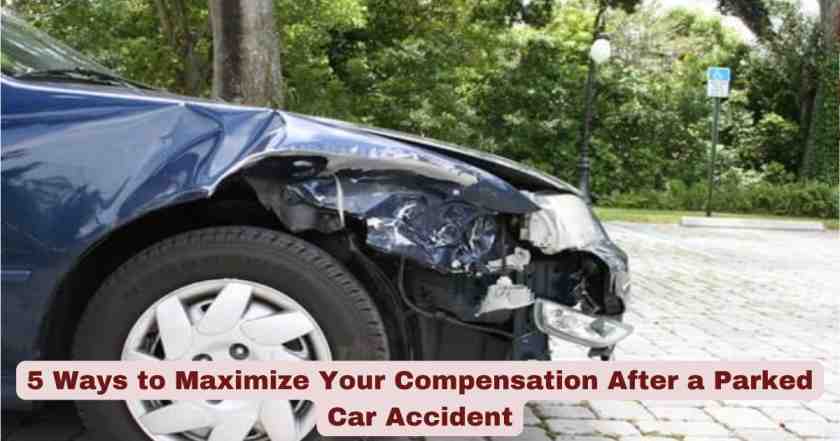If your parked car has been hit, you may still be able to recover compensation, even if you weren’t in the vehicle. The process involves collecting evidence, reporting the incident, and filing the right insurance or legal claim to cover your losses. Parked-car accidents might seem straightforward, but maximizing your payout takes strategy and documentation.
So, if you are wondering, ‘Can I sue someone for hitting my parked car?’ The answer is yes, and here is what you’ll need to ensure maximum compensation:
1. Gather Strong Evidence Immediately
Start by securing proof at the scene. Take clear, close-up photos of the damage, the surrounding area, debris, and any nearby security or traffic cameras. Note the time, date, and location of the incident. Collect witness names and contact details, as this evidence can help establish who caused the damage.
2. Report the Incident to Police and Insurers
Always file a police report if the other driver isn’t present or leaves the scene. This official record helps your insurer verify the claim and determine liability. Report the accident to your insurer as soon as possible and request a copy of the police report with the help of the case number. Keep detailed records, including phone call summaries, claim numbers, and emails with adjusters.
3. Get Accurate Damage Estimates and Track Expenses
To ensure fair compensation:
- Obtain at least two professional repair estimates.
- Keep itemized invoices and photos of the damaged parts.
- Avoid approving repairs until the insurer completes its inspection.
- Track out-of-pocket expenses like towing, storage, and rental car costs.
- Preserve all damaged parts until your insurer reviews them.
These steps can help you recover both direct and secondary costs related to the damage.
4. Claim Diminished Value and Additional Losses
Beyond repair costs, you may be eligible for “diminished value,” the drop in your car’s resale value after an accident. This is especially relevant for newer vehicles. Maintain service records, pre-accident photos, and mileage logs to prove your car’s prior condition.
If you live in a state that allows it, claim compensation for extra costs such as lost work time, rideshares, or property damage to nearby objects. Independent appraisers can provide reports that strengthen your diminished-value claim.
5. Avoid Common Mistakes That Lower Your Compensation
Certain errors can hurt your claim, including:
- Waiting too long to file a police or insurance report.
- Losing photos or failing to get witness details.
- Posting details of the accident online.
- Accepting a quick settlement before reviewing all damages.
If the at-fault driver is uninsured or the insurance offer is too low, you may need to consider legal action or file through your own uninsured motorist coverage.
What If It’s a Hit-and-Run?
If you discover your car was hit and the driver fled, call 911 immediately. Give officers any partial license plate, vehicle description, or witness statements you can gather. This information can be crucial in recovering damages.
Also, check for nearby security or doorbell cameras that might have captured the incident. Call the cops as soon as possible, notify your insurance company, and ask about uninsured motorist property damage coverage.
Prompt reporting increases your chances of identifying the at-fault driver and receiving full compensation for repairs and related losses.
Key Takeaways
- Document the scene immediately; photos, witnesses, and receipts are key.
- File a police report and contact insurers without delay.
- Get multiple repair estimates before authorizing any work.
- Consider diminished value, not just visible damage.
- Keep a complete record of all communication and expenses.
- If needed, explore small claims or legal options within your state’s deadline.







